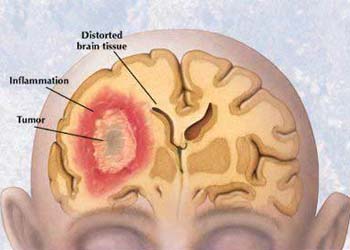Researchers Found Genetics Of Kids' Brain Tumour
 Researchers have discovered a vital cancer gene, which could help them creating more successful medications in order to fight pediatric high grade glioma, an illness that presently has a poor diagnosis.
Researchers have discovered a vital cancer gene, which could help them creating more successful medications in order to fight pediatric high grade glioma, an illness that presently has a poor diagnosis.
Gliomas are the most common type of brain tumour in kids.
Researchers at The Institute of Cancer Research (ICR) and The University of Nottingham on behalf of the UK Children's Cancer and Leukaemia Group, and St Jude Children's Research Hospital in the US, carried out the largest research thus far of pediatric high-grade glioma, establishing a thorough scan of the genome of 78 newly-diagnosed patients.
The scientists equated the samples of pediatric tumour with the genome of adult gliomas, looking through 500,000 individual pieces of DNA for variations in the number of copies of each.
In pediatric gliomas, a gene known as PDGFRA on chromosome 4q12 was commonly exaggerated and there were often additional copies of chromosome 1q. All these alterationa are not often seen in the disease's adult form.
Clinical differences between gliomas in grown ups and youth had already been detected, however, this is the first research to set up that the underlying genetics are different.
Dr. Chris Jones, Leader of the Paediatric Molecular Pathology Team at the ICR stated, "We found significant differences between the genomes of adult and young people's gliomas. This is an important finding because it means studies on adult gliomas cannot simply be applied to younger patients, and it has particular implications for drug trials."
The study researchers also followed gene activity in 53 tumour samples, and equated the outputs with adult gliomas. Paediatric glioma tumours in which did not have the PDGFRA variation were nevertheless found to have related genes switched on, hinting that this biological pathway is a key to the development of this childhood cancer.
Prof. Richard Grundy from the Children''s Brain Tumour Research Centre at The University of Nottingham said, "This cancer gene is unusually active in pediatric high-grade gliomas and is likely to be an important drug target."
Besides, 10 kids in the research had glioma that arose after they were treated with radiotherapy to the brain for a previous cancer. Analysis of these children's tumours revealed they had the gene alterations at even higher frequency than the other cancers studied, which had been triggered by other factors.
The results of the research have been published in the Journal of Clinical Oncology. (With Inputs from Agencies)